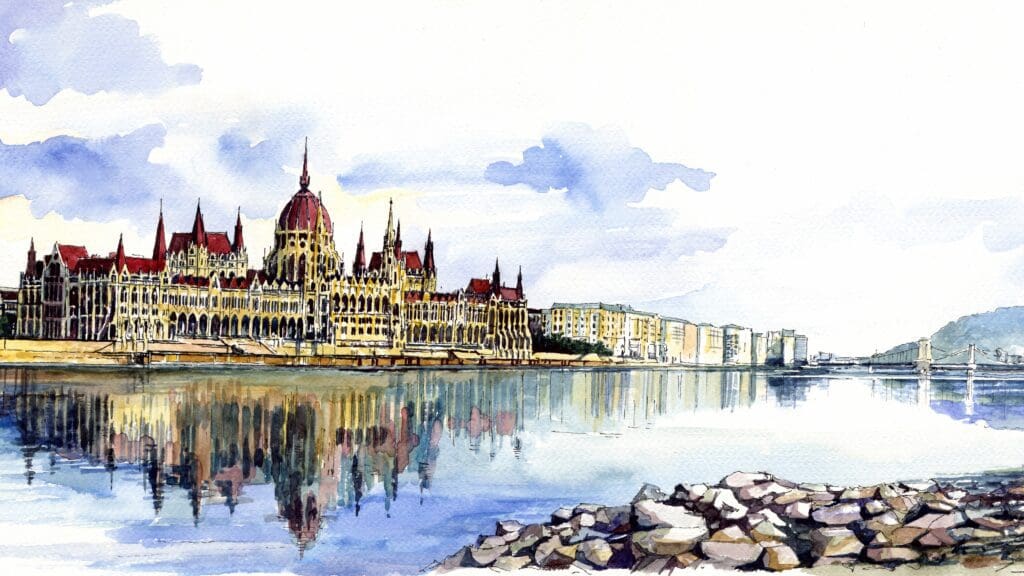Trust is a fundamental building block of societies. It is the basis of trade relations and it influences political structures, as it is a prerequisite for both economic growth and democracy. For functioning societies, it is vitally important that citizens trust each other and their political leaders, as breaking trust is very easy, but it takes decades to build it up. While generally speaking Western Europe is characterized by high levels of trust, Central Eastern European societies, due to the legacy of Communism, have lower trust levels, which hinders their economic and political prospects and development.
Just after the regime change, in the 1990s, 50 per cent of Hungarian, 66 per cent of Russian and 31 per cent of Czech respondents said in a survey they believed that they and their cases would not receive fair treatment from public officials. 89 per cent of Slovaks were of the opinion that politicians only care about themselves and their clientele; and 66 per cent of Poles felt that voting did not give people a say over how the government is run.[1] Only 23 per cent of Hungarians held a strong trust in others (compared to the 43 per cent of British and 46 per cent of Danish respondents), while 70 per cent of Russians believed that people around them had a malevolent or even hostile attitude to each other. That is to say, in the transition region both trust in the government and in the respondents’ fellow countrymen as generally lower than in the neighbouring, not post-communist countries.
Some argue that the roots of distrust in the post-communist world can be traced back to the legacies of Communism. Due to the secretive, corrupt and authoritarian nature of state socialist one-party systems, general trust in the establishment was very low before the transition. The impact of this pervasive lack of trust has lingered on, well after the 1989–90 system changes. The more oppressive a given state socialist regime was, the lower the trust levels are in present-day societies. That is, in the post-Soviet space, where the pre-regime change political structures were more repressive, people are more distrusting, while Central Europeans, who have experienced a milder form of state socialism, trust their political leaders and fellow citizens relatively more.[2]
The experience of Communism continues to have a long-lasting negative impact on social capital in Central Europe even decades after the collapse of one-party systems
So Communism’s negative influence on trust has had a very long-lasting effect on the trust levels of post-communist societies.[3] World Value Surveys have found that trust levels in different countries are remarkably stable over the years, and the trust level of immigrants in the USA adjusts to American domestic trust levels in the matter of a few decades following their moving to the United States. As opposed to that, the experience of communism, which created low trust levels in the region, continues to have a long-lasting negative impact on social capital in Central Europe even decades after the collapse of one-party systems. A study from 2010[4] has even suggested that the low trust environment in Central Europe negatively impacts even those young people who were born after the demise of the state socialist regimes. It has also been pointed out that long-lasting low trust levels are especially concerning as they are associated with higher levels of corruption.[5]
The legacy of Communism is not the only factor, however, which influences current trust levels. The way in which the transition was carried out also had an impact on trust in Central Europe. Susanne Choi and Roman David have determined three forms of transitional justice in the region (1. dismissals as retribution, 2. exposures as a form of truth revelation, and 3. confessions as a reconciliatory strategy) and argue that the path Hungary took with dismissals was most conducive to the re-establishing of trust in public office holders.[6] They found that formerly communist public office holders in Hungary who were subjected to some form of punishment after the regime change were more likely to be trusted, while in countries which only exposed formal collaborators without retribution, citizens were less likely to trust tainted officials. This suggests that while on the whole trust is low in the entire region (and it is likely to stay that way for a while), slowly but surely convergence with the rest of Europe is possible – but for that to happen, it is necessary to build up trust both horizontally and vertically.
[1] David W. Lovell, ‘Trust and the politics of postcommunism’, Communist and Post-Communist Studies,34/1 (2001), 31–32.
[2] William Mishler and Richard Rose, ‘Trust, Distrust and Skepticism: Popular Evaluations of Civil and Political Institutions in Post-Communist Societies’, The Journal of Politics, 59/2 (1997), 427.
[3] Leonid Traps, ‘Communism and Trust’, Journal of Politics & International Affairs, 5/63 (2009), 14.
[4] Valentina Dimitrova-Grajzl and Eszter Simon, ‘Political Trust and Historical Legacy: The Effect of Varieties of Socialism’, East European Politics and Societies, 24/2 (2010) 220.
[5] Eric M. Uslaner, ‘Trust and Corruption,’ The new institutional economics of corruption, 76 (2004), 94–106.
[6] Susanne Y. P. Choi and Roman David, ‘Lustration Systems and Trust: Evidence from Survey Experiments in the Czech Republic, Hungary, and Poland’, American Journal of Sociology, 117/4 (2012) 1194.








